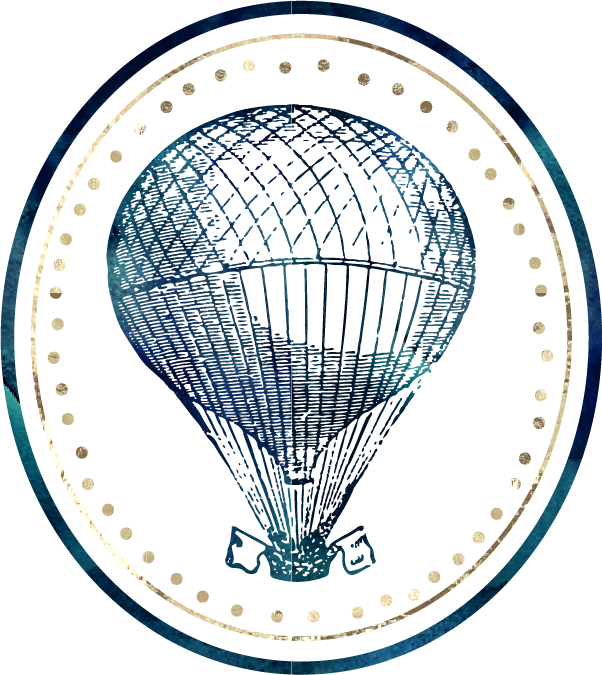Ah, jet lag. The curse of the traveler. The woe of the wanderer.
By definition, jet lag is “the misalignment of your body’s internal clock with the local time at your destination.”
It occurs when your body’s circadian rhythms (internal clock) are disrupted, typically due to travel across three or more time zones.
At a basic level, circadian rhythms tell your body when it should be awake, when it should be asleep, and what it should be feeling during the time in between.

Circadian rhythms dictate the ‘rhythm’ of the day and allow us to naturally acclimate to the sunrise, sunset, and daily schedule of life in the time zone we typically dwell within.
Your circadian rhythms regulate all sorts of things in your body like when to be tired and when to when to be hungry, and regulate bodily functions like bowel movements, mental irritability and clear thinking.
Note: Jet lag is often confused with travel fatigue. Not the same.
Tiredness and headaches from local travel are just what it sounds like- fatigue.
If you aren’t launching your body across several time zones and having to suddenly exist in the literal future (or past), honey- you’re just a little fatigued and dehydrated from the general exertion of travel.

Have some water, take it easy, go to bed early, and you’ll be fine.
Bottom line- if you’re traveling more than three time zones away, you need to get your circadian rhythms on track for your destination as quickly as possible.
Simple, right? Yes- but not always easy if you don’t have a Navy Seal’s willpower clear plan to make it happen.

ENTER: my slightly neurotic time-honored traditions for defeating the jet lag monster and actually enjoying your trip without falling asleep in every taxi or train you sit in. (yes, of course- I have done that.)
My method can be followed in 6 basic steps:
1. Decide if you should sleep in transit.
Consider your journey’s length and arrival time at your destination.

Decide by considering these 3 things:
A. Humans usually only stay awake for about 16-18 hours at a time.
We definitely CAN stay awake for longer (ask me later about that time I was awake for 40 hours..LOL) but we typically need a reset/recharge of the body for proper function after about 18 hours.
B. How many hours will you actually be in transit?
Will you have been awake for more than 18 hours by the time you land?
C. What will the local time be when you land?
You need land ready to finish the day upright and in motion based on that landing time.
3 examples:
- On an 8 hour flight departing Atlanta at 4:30 pm (EST) and arriving in Paris at 7:00 am (CET) the following day, you’re going to want to get some rest on the plane so that your body will be more apt to believe that a full night has passed and it’s not 1am Atlanta time, but 7am Paris time.
Even if that’s just eye-masked noise-canceledpretend sleeprest (who can actually sleep on planes if you’re not up front in a lie-flat seat?), it’s important to have a period of relaxation and rest to allow your body to maintain its rest-wake rhythm, even if it’s not a full 8 hours of actual sleep. - If your 8 hour flight is departing Atlanta at 8:00 am and arriving in Paris at 10:00 pm, it’s going to be in your best interest to stay wide awake for the entire journey (but avoid caffeine- especially in this scenario!). By staying awake for the entire journey, you’ll be more fatigued upon arrival and therefore more likely to be able to get to sleep at a reasonable local bedtime.
- For more intense time zone changes, like departing Atlanta at 8:00 pm and arriving in Dubai at 10:30pm the following day– it’s definitely good to try to sleep for a while during the 18 hour journey.
Remember, humans need regular rest at least every 18 hours and you were likely already awake for at least 12 hours before you even boarded the flight. Just make sure you’re attempting to sleep at an appropriate time.
2. When you board the flight, set your watch to the local time at your destination.

Once that aircraft boarding door closes, tell the clock in your brain that you’re already at your destination.
If you don’t have a watch you can set, use your cell phone’s world clock function (in airplane mode, of course) to keep tabs on the time in your destination. (Most newer aircraft have this ‘time at destination’ function built into the in-seat entertainment screen also. If you don’t want to go to the trouble of setting your watch, just click around a bit in the entertainment features and you’ll find it.).
Based on the actual time at your destination, try to sleep/rest and be awake during your journey at normal sleep and wake times. This is a weird sensation, but when you focus on the actual time at your destination, it’ll feel more do-able.
3. When you land, be in the time zone you’re in.

Forget what time it is at home. You’re in a new place now. Only focus on the time in your current location. Don’t dwell on it. Note the local time and make a plan to stay upright and moving in order to stay awake until an appropriate time for sleep.
Using our Atlanta to Paris example above, when you land in Paris at 7am local time- don’t think about the fact that it’s actually 1am in Atlanta.
I’ve traveled with so many people who are constantly ‘doing the math’ and using the time difference as an excuse to be a grumpy asshole for being tired.
Just don’t focus on it. Be where you are and your body will follow.
After landing and checking into your lodging, unpack, shower, and follow a plan for staying upright and moving.
DO. NOT. LIE. DOWN.
A nap at this point is a jet lag death sentence. (I recommend unpacking and showering even if it’s late at night and the plan is to go to bed soon!)
4. Eat a Meal
This is important: be sure to eat when it’s time to eat.

I don’t care if you’re hungry or not. Just do it.
Even better, eat outside if you can. (The sunlight or moonlight helps to reset your circadian rhythms!)
Have something to establish the mealtime in your body. I also find it useful to have the appropriate type of meal- breakfast if it’s breakfast time, lunch if it’s lunchtime, dinner if it’s dinner time, but you do you.
Equally important: hydrate, hydrate, hydrate.
You now have the luxury of a real (non-airplane) bathroom at your disposal whenever you need it.
POUND. THAT. WATER.
Seriously- getting a huge amount of fluid through your body to flush out all of the strange things that happen in your guts in transit is super super important for beating jet lag and fatigue.
Note on Caffeine: If it’s early in the day and you need a little shot of coffee to feel a perk and make it to bedtime- do it- but not if it’s after about 3:00 local time.
Consuming caffeine after about 3:00 will fuck your ability to get to sleep (or get quality sleep) when the time finally comes. I don’t care if you ‘do it all the time at home.’ You’re not at home. This is an important factor in the battle to acclimate to your new location.
5. Move A Bit
Make sure that your plan to stay upright includes some movement and fresh air.


If it’s daytime, get a little bit of sunlight on your skin (hello circadian rhythms telling you to WAKE UP! The SUN IS UP!).
Walk around a local market or shopping district. Stroll through a few museums. Hit the beach for a swim.
If it’s evening and you just need to kill a few hours before bed, walk to dinner. Walk to the grocery store and pick up a few things for your room.
JUST GET OUT OF YOUR HOTEL ROOM AND MOVE AROUND.
If it’s too late to leave the room, do some stretching before bed just to get some oxygen moving through your muscles.
Beyond helping you stay awake, getting out is good for several reasons- like getting your blood flowing and oxygenated after a long journey, releasing cramped muscles, and alleviating issues from slowed digestion.
If I know I’m landing early in the day, I’ll usually plan activities to pass the afternoon- hit a few museums, book a leisurely boat ride if I’m near water, take a walking tour of the city, etc.
Just don’t do sedentary or dark-room things like seeing a stage show/movie or lying by the pool. (You’ll pass out and miss it!)
If you have an engaging activity plan upon arrival (especially if it involves paid tickets!), you’ll be less likely to succumb to your sleepies.
6. Above all else, the most important point is this:
DO. NOT. SLEEP. UNTIL. IT’S. TIME. TO. SLEEP.

No cat naps. No quick rest of the eyes. No lie-down baths. Don’t do it.
Stay upright and awake.
There’s no shame in an earlier-than-usual bedtime on your first night (or two) in a new time zone, but make sure it’s an appropriate time for an adult to be going to bed.
8:30 or 9:00 is the earliest you should be heading to sleep to avoid being upright and perky at 2am.
This will allow for a good 7-8 hours of crash sleep plus a little more if your journey was particularly taxing. You’ll likely be so tired from the travel and excitement of being in a new place that you won’t have any trouble dozing off and waking refreshed at the appropriate time to start your trip off right.
Another quick tip- adjust your medication times to your time zone to avoid confusing your body. It still runs on a 24 hr clock, regardless of the actual time. Remember: Your 4 pm birth control pill in Atlanta is a 9 pm pill in London!


 Sexy, Sexy Compression Socks
Sexy, Sexy Compression Socks The Wonders of Sleeping on Silk
The Wonders of Sleeping on Silk Dry Shampoo. Best Practices.
Dry Shampoo. Best Practices. Should I Sleep or Stay Awake in Transit? How to Decide and Successfully Do Either
Should I Sleep or Stay Awake in Transit? How to Decide and Successfully Do Either




